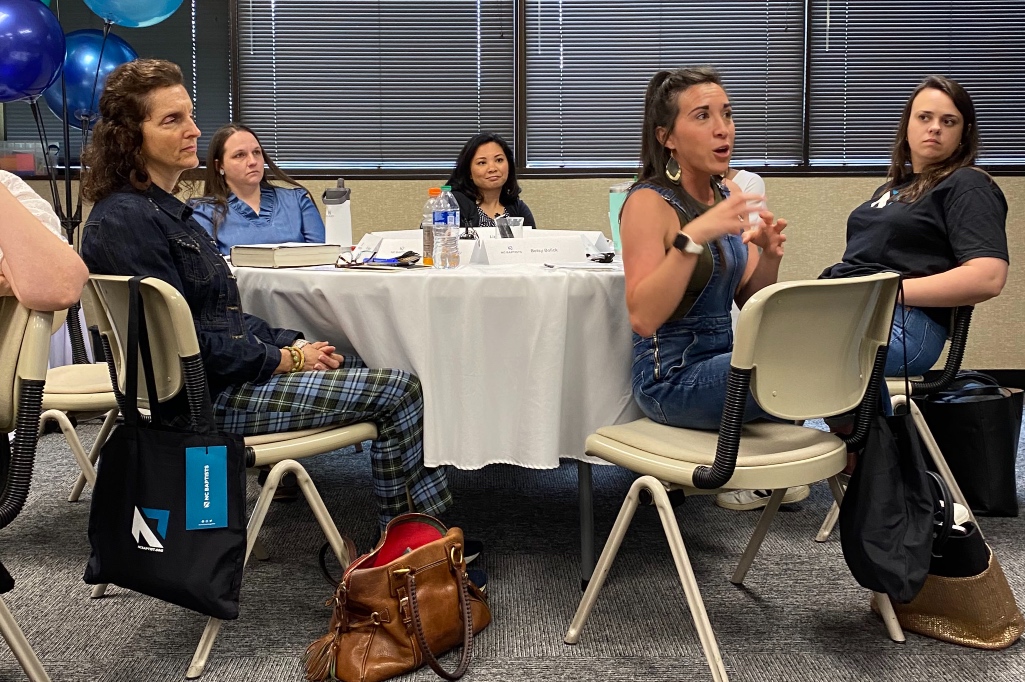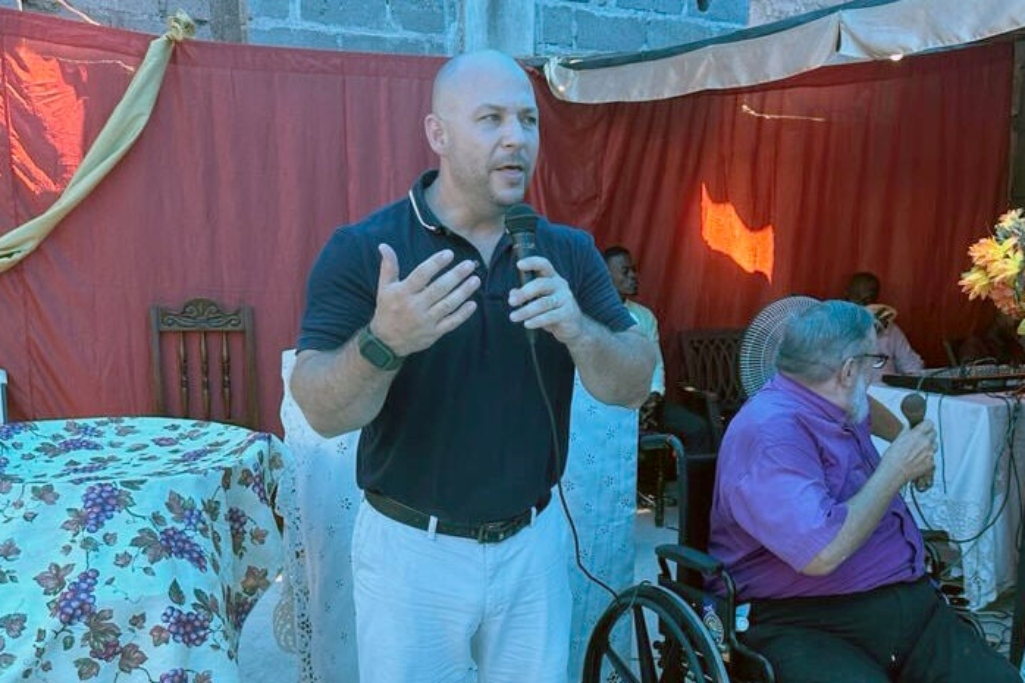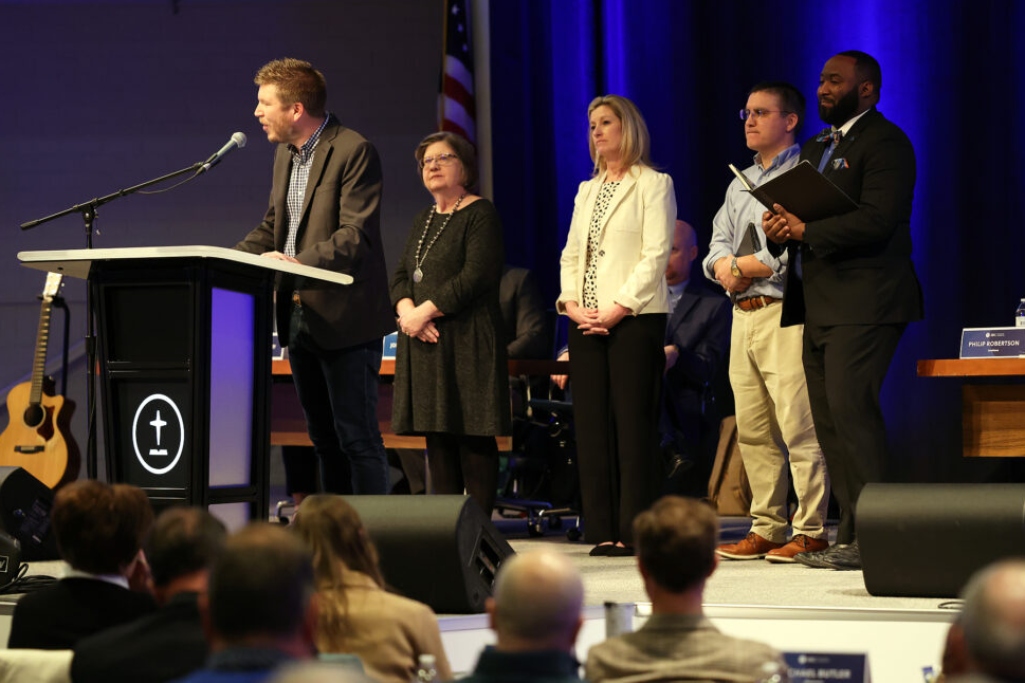
Women from across the state gathered at the N.C. Baptist building on Thursday, July 20, for a roundtable discussion about encouraging and strengthening women in Christian ministry.
CARY, N.C. – Women from across the state gathered at the N.C. Baptist building on Thursday, July 20, for a roundtable discussion about encouraging and strengthening women in Christian ministry.
Rather than focus on women’s ministry leaders, the event included a broader conversation about women in ministry and how N.C. Baptists can help address, encourage and support the calling that the Lord has placed on many women’s hearts through various roles in local churches.
Event organizers included Ashley Reffit, N.C. Baptist women’s discipleship consultant; Alex Hugo, N.C. Baptist college ministries strategist; and Kathryn Carson, N.C. Baptist director of marketing and communications.
Following actions and conversations at this summer’s Southern Baptist Convention (SBC) annual meeting around the office of pastor and who is qualified by Scripture for that office, N.C. Baptist officials felt like it was an important time to gather a group of women actively serving in churches across the state to hear their thoughts and discuss how Christains can honor the call to ministry in each person’s life.
“We really value what the Lord is doing in North Carolina Baptist life through men and women, and frankly we know that we have got to do better, all of us together, of listening to the needs of our leaders both men and women,” said Brian Upshaw, N.C. Baptist associate executive director-treasurer, at the outset of the meeting.
The context for the conversation
Amy Whitfield, executive director of communication at The Summit Church in Raleigh-Durham, presented an SBC update as well as a reminder of the complementarian views held by N.C. Baptists.
In the SBC we have lived under a consensus statement of faith for nearly a hundred years, but under the current one for 23 years. In 2000 when it came to the issue of women in ministry, it was expressed that the consensus statement of faith would be that while both men and women are gifted and called for service in the church, the office of pastor is limited to men as qualified by Scripture.
But the debate that is taking place currently is much broader in that it concerns what the SBC’s standards of cooperation are and what being in “friendly cooperation” with those standards means. The issue of women serving in pastoral ministry has been on the SBC’s credentials committee’s docket for the last four years (since they were created) and it continues to be a topic for discussion due to submissions from churches across the nation.
This conversation might die down, but it will not die. State-level annual meetings will be held through the end of the year where leaders and messengers will surely discuss this topic. There is a wide spectrum of opinions throughout the SBC and they will be worked, tested, and perhaps revealed at next year’s SBC annual meeting.
“I don’t know where this larger conversation is going to end up,” Whitfield said. “What I do know is that we are in a state where this state convention has said we want to equip women in ministry, and I have the posture of, ‘Where there are the people that are saying and doing that, I’m going to show up for that conversation.’”
Promoting the flourishing of women in Christian ministry
As the meeting progressed, the first topic of conversation for the group was on ways to promote the flourishing of women in Christian ministry.
Kendra Joyner, children’s ministry director at Green Street Baptist Church in High Point, shared how her table discussed the value of representation of women working in ministry, especially for young women in the church. Simply seeing women work in ministry and being available to speak on their experience is extremely beneficial, Joyner said.
Involving and including women in conversations and decisions was another way to promote the flourishing of women in ministry, attendees said. Carson spoke from her own experience of being asked to serve on the executive leadership team at N.C. Baptists by executive director-treasurer Todd Unzicker.
“I think that when you can have a woman as a decision maker… sit down and have dialogue, build a relationship, have open discussion with respect and love, that goes a very long way,” Carson said.
Filling in the gaps
Unzicker also met with the group and took questions. He thanked attendees for their participation and shared some of his thoughts in light of national events related to caring for women in Christian circles.
“What happens nationally is not necessarily reflective of how we do things here in North Carolina, I want you to know that and feel that,” Unzicker said. “But I also want to know how we can serve you better.”
Unzicker and attendees engaged in an open free-flowing dialogue that touched a variety of topics.
One item that was addressed was the need for biblical literacy for women. Betsy Bolick, college ministry director at Perkinsville Church in Boone, said she is seeing firsthand the need for discipleship for all ages, not just her college-aged students.
“They know how to care for the sick, but they do not know how to read 2 Timothy, and I think that is what has broken my heart,” Bolick said.
Equipping women to ministry through biblical literacy may be the first step, but then women may run into the issue of choosing a role to serve in. Janetta Oni, creative director at The Summit Church, called out how overly gendered she found resources on church roles to be.
In her experience, Christian books and resources tend to be geared toward pastors even when we’re living in an age where there are many more people on a church staff. Building up women can simply mean building up everybody, because at the end of the day many men are also not going to be called to those roles, and there are many other ways to lead in a church besides being pastor or elder, Oni said.
“If we can bring more weight to the word pastor and elder, but then also bring weight to the other roles in leadership then that might undo some of the damage,” Oni said. “Because most women aren’t trying to be pastors or elders, they’re trying to be leaders.”
Hannah Nelson, executive assistant to the executive director-treasurer added, “There’s more Scripture that gives instruction to the body of Christ than specifically to the elder or pastor. There are lots of specific instructions, but there’s also instructions about how to use your gifts in the body of Christ as a whole and I think we sometimes hyperfocus on the pastor/elder role.”
Looking ahead
As the time drew to a close, Reffit encouraged all participants to attend the N.C. Baptist annual meeting on Nov. 6-7 in Greensboro where there will be more opportunities for discussion for women in leadership.
“Will the nations see more of Jesus tomorrow because of your ministry today?” Reffit said. “Your ministry to children, to students, on the college campus, to women as you disciple them, as you lead worship, as you write, as you create, as you direct, as you lead, as you point people to Jesus.”


